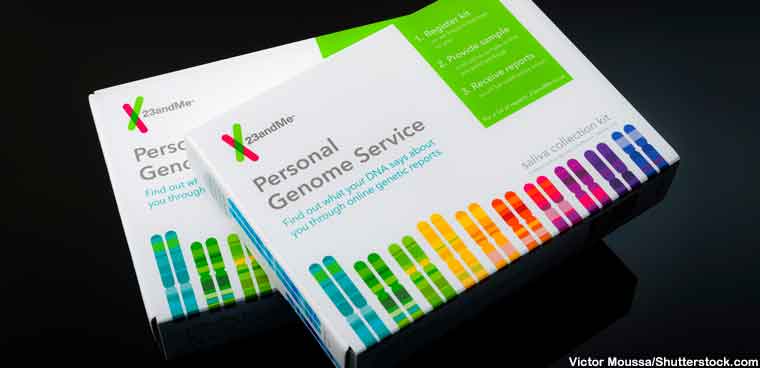

DNA databases are boon to police but menace to privacy, critics say
Nearly two years after the arrest of the suspected Golden State Killer revitalized DNA forensics, some state lawmakers around the country are pushing to stop or restrict police searches of genetic code databases.
Other lawmakers, meanwhile, want to make it even easier for police to use the technique, known as investigative genetic genealogy, to catch criminals.
Inspired by the capture of the alleged Golden State Killer, police across the United States are uploading crime-scene DNA to GEDmatch and other databases where purchasers of genetic testing kits from companies such as 23andMe and Ancestry can share their DNA in hopes of finding long-lost relatives.
Arrests have been made in dozens of cases — many that had been considered cold. Advocates of the practice tout the ability to find people who committed horrible crimes and exonerate those who did not.
“I believe, 100%, that DNA is the greatest tool ever given to law enforcement to find the truth, whatever that is,” said Anne Marie Schubert, independent district attorney of Sacramento County, California, where the suspected Golden State Killer was arrested.
But law enforcement’s use of the DNA databases has opened another front in the growing battle over digital privacy. Should third parties — in this case, police — have access to personal data people generate by using consumer technology? And should investigators be allowed to use the technique to solve all crimes, or only the most violent ones?
Americans are divided on whether police should use investigative genetic genealogy to solve crimes, according to a recent study released by the Pew Research Center. (The Pew Charitable Trusts funds the center and Stateline.) In a June survey of more than 4,200 U.S. adults, 48% said they were OK with DNA testing companies sharing customers’ genetic data with police. A third said it was unacceptable, and 18% were unsure.
“What we have right now we can call the Wild West. There aren’t a lot of rules on the ground,” Natalie Ram, an associate professor of law at the University of Maryland, said in an interview. “State legislatures are one of the best-situated bodies to engage in rule-making in this area.”
This year lawmakers are starting to do just that.
A state representative in Utah introduced a bill that would ban genetic genealogy searches by police. A Maryland lawmaker introduced a bill to regulate searches — after a proposal last year to ban them failed. In New York, a state senator has proposed a policy to allow the searches. A Washington state proposal would allow only searches requested through a valid legal process.
And three direct-to-consumer testing companies have formed a coalition and are lobbying Congress for federal oversight to restrict police access to their databases and protect consumer privacy.
Schubert expressed skepticism about legislative proposals cropping up.
“If they want to weigh in on it, that’s fine, as long as they understand what it is, how it works and what it does and doesn’t do,” she said. “It shouldn’t be a race to see who can be the first to ban it or vice versa.”
How it works
The man accused of being the Golden State Killer, Joseph James DeAngelo, was arrested after investigators uploaded crime-scene DNA to online genealogy database GEDmatch, matched it partially to his great-great-great-grandparents, built family trees of relatives and eventually traced it to him. Police obtained surreptitious samples of DeAngelo’s DNA to confirm the match.
After DeAngelo’s arrest, Schubert started a nonprofit with a few other law enforcement figures called the Institute for DNA Justice. They aim to educate the public about investigative genetic genealogy. And they encourage people to upload their DNA to GEDmatch or FamilyTreeDNA, another open database, to help police.
Schubert said police don’t get behind-the-scenes, unlimited access to peruse DNA databases, despite what many people believe. Instead, investigators upload a DNA profile and get a list of matches and partial matches like the average user, she said in an interview.
The rest is traditional police work: using leads to narrow down the matches to a person who fits the description of the suspect, gathering a surreptitious sample and comparing it with the crime scene DNA profile.
“It is a blend of science and traditional law enforcement,” she said.
More than 15 million people worldwide had undergone direct-to-consumer DNA testing by early 2018, according to a report from the journal Science. Researchers estimated that 60% of searches of a database with 3 million U.S. residents of European descent could lead to a third cousin or closer match.
By the end of 2019, GEDmatch’s database had been used to solve at least 70 U.S. violent crimes. Verogen, a forensic genomics company, bought GEDmatch in December, and said that the use of its database as a crime fighting tool — for people who share DNA and opt in to police searches — would continue.
Forensics company Parabon Nanolabs has relied on public databases such as GEDmatch to identify 83 crime suspects and 11 homicide victims since May 2018, when it began offering genetic genealogy service to law enforcement agencies, said Paula Armentrout, the company’s vice president, in an email. The company charges law enforcement $1,500 to process DNA and another $3,500 for the genealogy research time.














